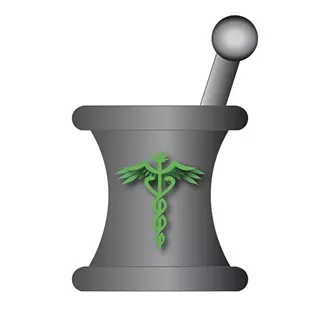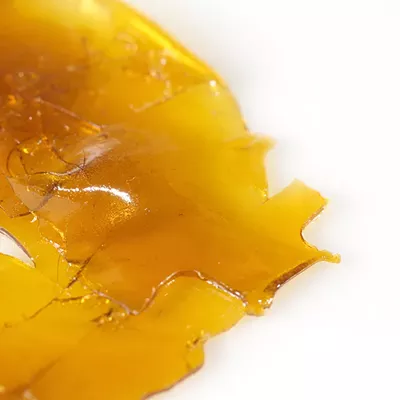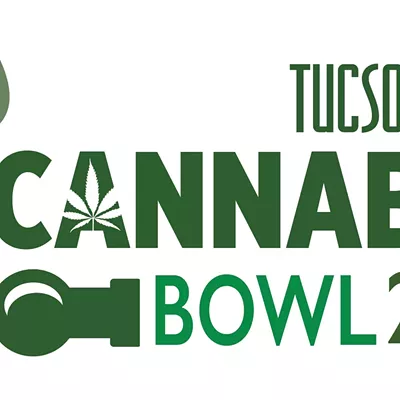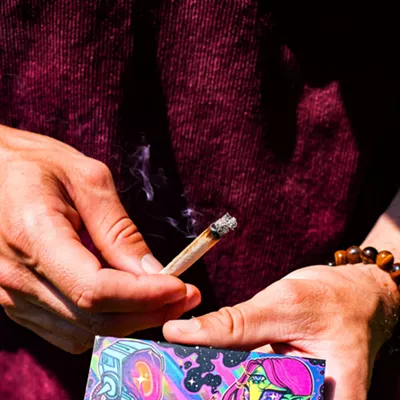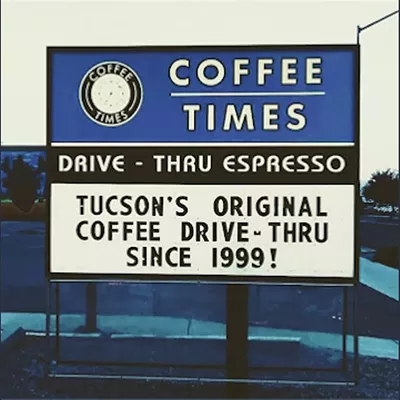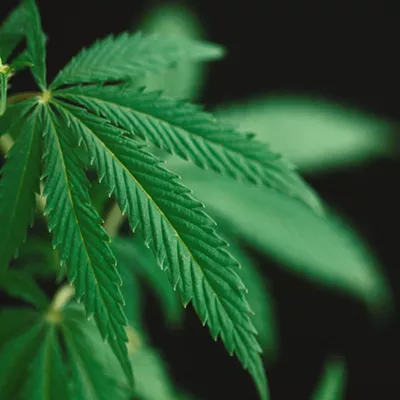Just like many of you, I have struggled with the new onslaught of medical information about cannabis.
There's a lot of data out there to parse, and it's hard to get past the fusillade of unsourced bloggers and marketing mavens who seem like they're giving you information, but are actually just telling you what they heard at a NORML meeting or trying to get your $150 for a certification.
Frankly, until I had this column, I hadn't thought any more about the medical wonders of cannabis than I had about the medical wonders of Tylenol or the Walgreens-brand red cough syrup my sister told me about. I've used that stuff to great relief, but I have never studied the science behind it.
But now that medical marijuana is here, and because people want to know (including me), here are a couple of places to get what seems like credible info.
The Man
When the Arizona Medical Marijuana Act passed, Will Humble, director of the Arizona Department of Health Services, and Laura Nelson, the agency's medical director, offered doctors a National Academies of Science report, "Marijuana and Medicine: Assessing the Science Base" as a comprehensive source on medical cannabis. It was produced by the nonprofit agency to inform the government about the medical uses of cannabis. Interestingly, the report concludes that we need clinical trials to sort out the value of cannabis as medicine.
Too bad the government ignored it.
Although the report is from 1999, it lays a good foundation for medical cannabis information, to my layman's eye. It offers chapters on pain, AIDS, cancer, glaucoma, neurological disorders and muscle spasticity. I found it useful, if dated. You can download it free at www.nap.edu/catalog.php?record_id=6376.
Doctors
A newer source that keeps coming up—several of you recommended it—is The Pot Book: A Complete Guide to Cannabis, compiled by Julie Holland, a psychiatrist who is a widely recognized expert in psychoactive drugs, especially street drugs. Holland, who specializes in drugs' effects on the brain, collected contributions from several cannabis experts for the 2010 book, part of which she wrote herself. It includes chapters on psychiatry, HIV, multiple sclerosis and spasticity, neuro-protection and sensible cannabis regulation.
I like the book for two reasons: It's an authoritative, recent source on medical cannabis, and it doesn't ignore the cultural aspects. Holland even quotes Willie Nelson, Brad Pitt and Bill Hicks on the virtues of the sticky. In Holland's defense, she includes an interview with Andrew Weil, the godlike natural health guru with the shining head, smile and disposition.
College
If you're really committed to learning about medical cannabis, you could shell out $215 for the seventh National Clinical Conference on Cannabis Therapeutics, which will be held at Loews Ventana Canyon Resort on April 26-28. The gathering is aimed at doctors (thus the accreditation via the University of California at San Francisco School of Medicine), but it's open to the public.
The faculty for the gathering includes some of the world's foremost cannabis researchers, including Holland and Weil.
Sue Sisley, a Scottsdale physician rejected last year by the Drug Enforcement Administration for a clinical trial of cannabis to treat PTSD, will speak, as will Donald I. Abrahams, a clinical professor at the University of California at San Francisco and a renowned researcher into the use of alternative medicines in the treatment of HIV/AIDS.
Presenters will offer the latest information about the endocannabinoid system and the potential for using cannabis to fight glaucoma, post-traumatic stress, cancer and schizophrenia, and in the prevention of Alzheimer's disease. For more information, see the conference website www.medicalcannabis.com/Clinical-Conferences/2012-tucson-az.

